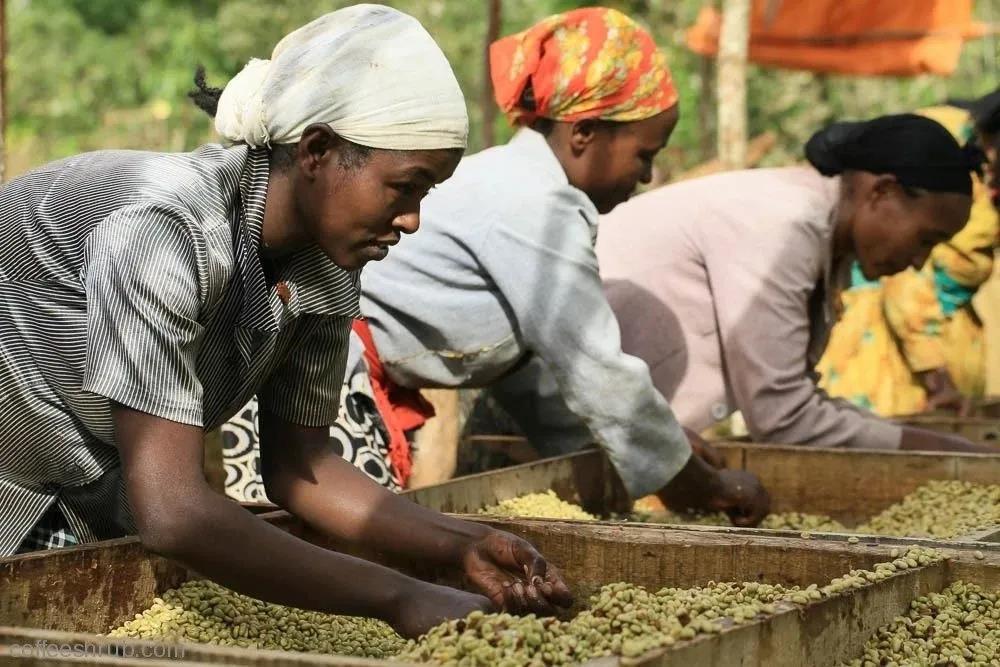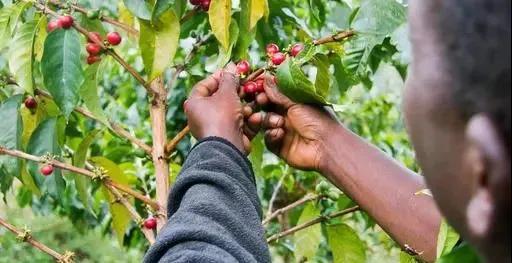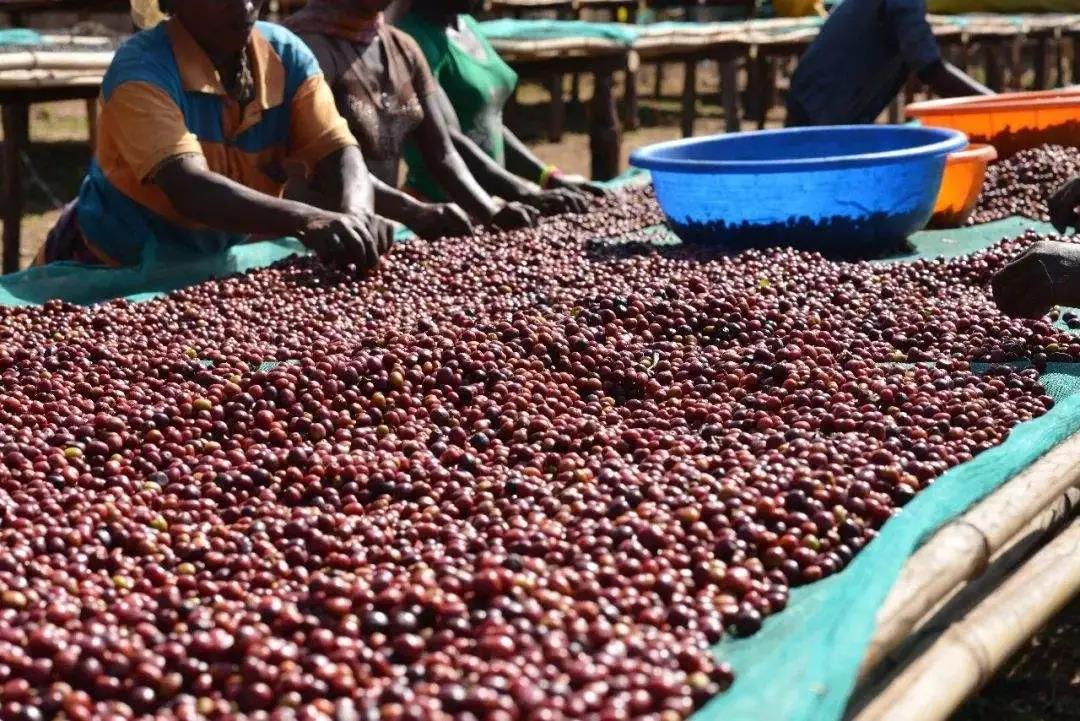Climate change affects the yield and quality of Ethiopia's Yega Xuefei boutique coffee beans
Professional coffee knowledge exchange more coffee bean information please follow the coffee workshop (Wechat official account cafe_style)
Climate change is affecting Ethiopia, Africa's largest coffee producer, according to a new study by an international research team. In the future, the production of Ethiopia's boutique coffee beans will continue to decline, and the flavor will become more and more insipid.

The Potsdam Climate impact Institute (PIK), who conducted the study, said: "Climate change will have mixed results for Ethiopian coffee. According to the Institute's simulation experiments, the areas suitable for growing commercial beans may gradually expand by 2090. But at the same time, if Ethiopia's climate change continues to worsen, the area where Ethiopian boutique coffee is grown may gradually shrink.
The researchers studied and analyzed five different coffee varieties in Ethiopia under different scenario simulations based on 19 weather factors, including average temperature, annual rainfall and seasonality. Studies have shown that if the temperature in Ethiopia continues to warm, the ripening rate of coffee fruit will be faster and faster. The lack of temperature difference between day and night slows down the ripening rate of coffee fruit, which shortens the time for coffee fruit to produce more flavor, which not only affects the quality of coffee fruit, but also affects the flavor performance of coffee beans.

On the other hand, the increase in rainfall is only good for the production of commercial coffee beans as a whole, but not necessarily a good thing for boutique coffee beans. The continuous rainfall has the opportunity to have a serious impact on the boutique coffee producing areas, and the worst-case scenario is that the Yegashafi region has the opportunity to reduce its acreage by 40% at the end of the 21st century.
Climate change will not only affect the output and quality of Ethiopian boutique coffee, but also affect Ethiopia's coffee economy. The researchers say that if Ethiopia's coffee-growing areas are unable to grow high-quality coffee because of climate change, it could have serious consequences for small farmers in the region. Because once they switch to commercial coffee, their competitors will be large-scale companies, such as coffee growers in Brazil and Vietnam, and lower costs also drive down sales prices. For countries where coffee exports account for about 1 per cent of Ethiopia's agricultural exports, this can be fatal.

But the researchers involved also said that the results of the study are only a worst-case scenario and that there are ways to stop the worsening trend. It is now known that different coffee varieties will have an impact according to different temperature, space, soil and other factors, so we can then plan corresponding measures for each region according to different changes, so as to improve the impact of the changes.
For more boutique coffee beans, please add private Qianjie coffee on Wechat. WeChat account: kaixinguoguo0925
Important Notice :
前街咖啡 FrontStreet Coffee has moved to new addredd:
FrontStreet Coffee Address: 315,Donghua East Road,GuangZhou
Tel:020 38364473
- Prev

The history of Nestl é and JDE introduces Nestl é and JDE launch coffee capsule recycling program!
According to foreign media reports, Nestl é and JDE announced the launch of their coffee capsule recycling program Podback on April 16. Foreign media said: the British local council will recycle many brands of coffee capsules, including strong coffee, Duoqiu, Tassimo, LOR and Starbucks. But this is not the first time Nestl é has launched a coffee capsule recycling program. Nesp, which previously focused on capsule coffee maker products.
- Next

Starbucks Environmental Day brings its own cup Starbucks launched a new "slag pipe" and "shop cup"
Green Starbucks has a new way of playing! On April 19, Starbucks announced on its official Weixin Official Accounts that it would soon launch a brand-new slag pipe and store cup. It is understood that April 22 is a festival specially set up for world environmental protection, and this festival is also a very special day for Starbucks. As we all know, every year on April 22, Starbucks will be like
Related
- Workers collapse! Lucky suspects that it will introduce freshly cut fruits?!
- 1-point subsidy recipients wear thousand-yuan watches?! Local response: For low-income households
- Can lightly roasted coffee beans be used to extract espresso? How finely should you grind high-quality coffee beans to make Italian latte?
- What is the difference between the world's top rose summer coffee and Yejia Shefi? What are the flavor characteristics of Yega Shefi coffee and Panama rose summer?
- The ceremony is full! Starbucks starts to cut the ribbon at a complimentary coffee station?!
- A whole Michelin meal?! Lucky launches the new "Small Butter Apple Crispy Latte"
- Three tips for adjusting espresso on rainy days! Quickly find the right water temperature, powder, and grinding ratio for espresso!
- How much hot water does it take to brew hanging ear coffee? How does it taste best? Can hot water from the water dispenser be used to make ear drip coffee?
- What grade does Jamaica Blue Mountain No. 1 coffee belong to and how to drink it better? What is the highest grade of Blue Mountain coffee for coffee aristocrats?
- What are the flavor characteristics of the world-famous coffee Blue Mountain No. 1 Golden Mantelin? What are the characteristics of deep-roasted bitter coffee?

